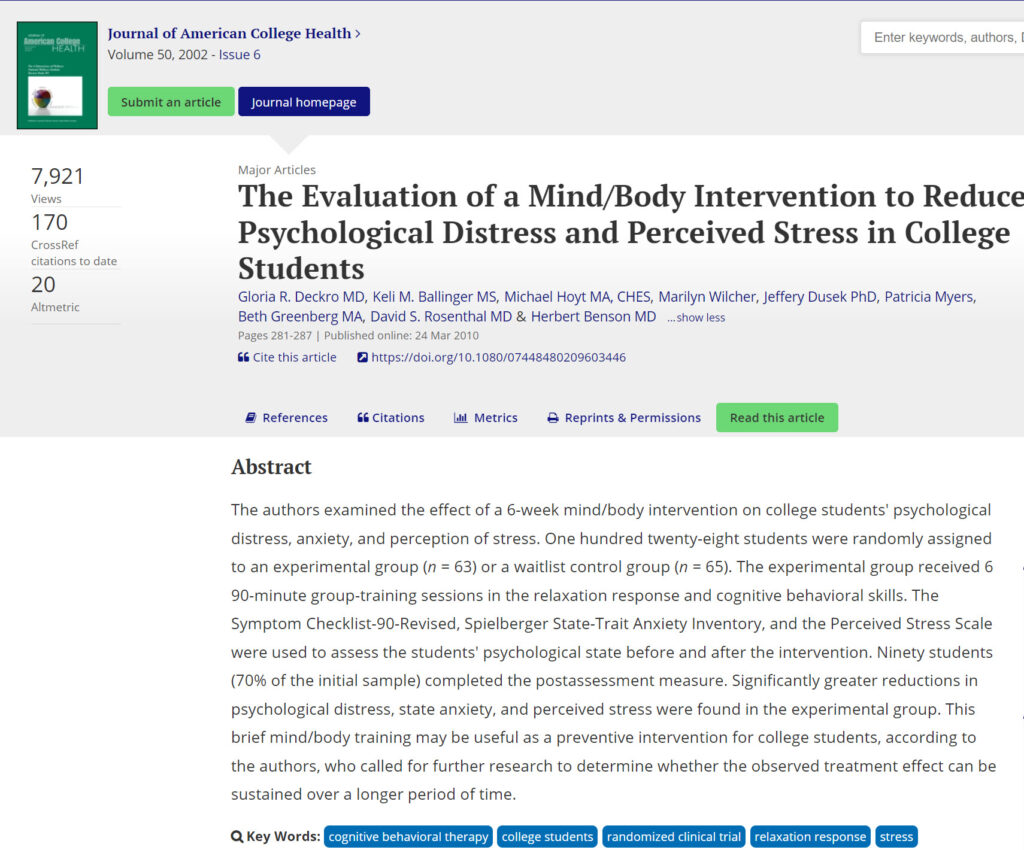The authors examined the effect of a 6-week mind/body intervention on college students’ psychological distress, anxiety, and perception of stress. One hundred twenty-eight students were randomly assigned to an experimental group (n = 63) or a waitlist control group (n = 65). The experimental group received 6 90-minute group-training sessions in the relaxation response and cognitive behavioral skills. The Symptom Checklist-90-Revised, Spielberger State-Trait Anxiety Inventory, and the Perceived Stress Scale were used to assess the students’ psychological state before and after the intervention. Ninety students (70% of the initial sample) completed the post-assessment measure. Significantly greater reductions in psychological distress, state anxiety, and perceived stress were found in the experimental group. This brief mind/body training may be useful as a preventive intervention for college students, according to the authors, who called for further research to determine whether the observed treatment effect can be sustained over a longer period of time.
The Evaluation of a Mind/Body Intervention to Reduce Psychological Distress and Perceived Stress in College Students
Publication
Journal of American College Health
50(6):281-7
Abstract
Web and Email Links
Related Listings
Journal
Neurobiology of Stress
Journal devoted to the neurobiology of stress
Journal
NeuroReport
Previous research indicates that long-term meditation practice is associated with altered resting electroencephalogram patterns, suggestive of long lasting changes in brain activity. We hypothesized that meditation practice might also be associated with changes in the brain's physical structure. Magnetic resonance imaging was used to assess cortical thickness in 20 participants with extensive Insight meditation experience, which involves focused attention to internal experiences. Brai […]
Journal
Minn Med.
Although the physiological and biochemical changes that occur during the acute stress response have been well-characterized, the contrasting changes that underlie the relaxation response evoked by various mind-body techniques are less understood. To help guide future mind-body research, we present a conceptual model that integrates patterns of change at the physiological and molecular levels. In addition, we point to future research opportunities and discuss how repeated elicitation o […]

